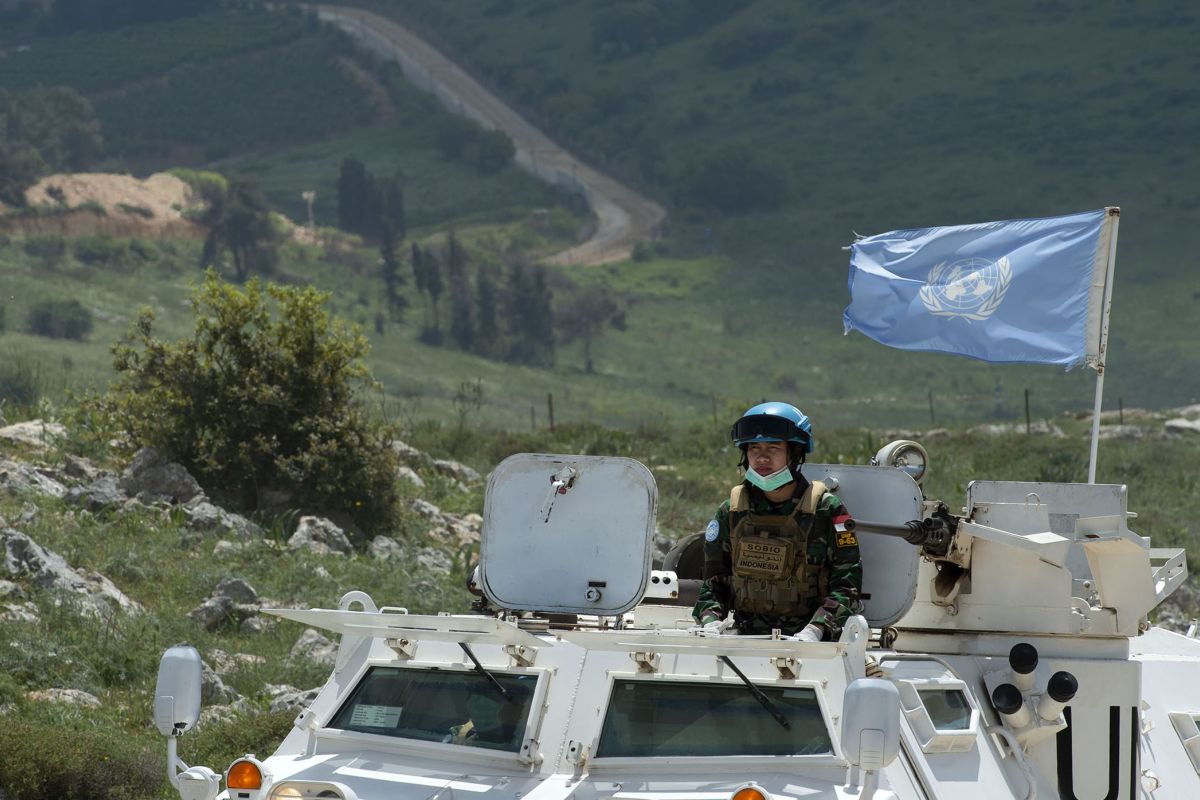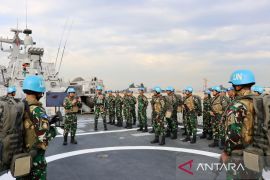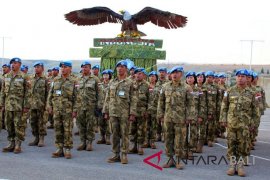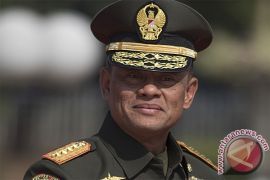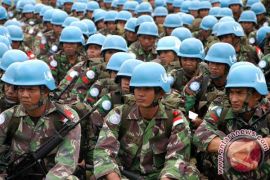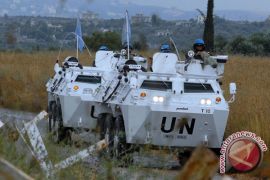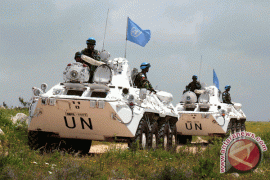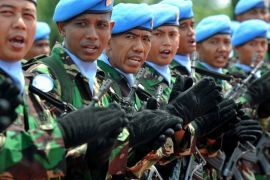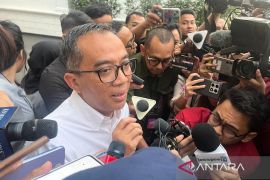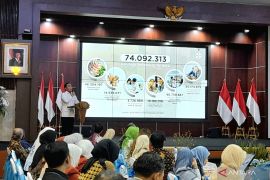It has now been 20 years since the resolution was adopted, and still the mainstreaming of women peacekeepers in field missions has remained a challenge.
In his speech on the International Day of UN Peacekeepers this week, UN Secretary-General António Guterres revealed that women represent just six percent of uniformed military, police, justice, and corrections personnel in field missions, although they play a critical role in protecting civilians and maintaining peace.
"Women often have greater access in the communities we serve, enabling us to improve the protection of civilians, promote human rights and enhance overall performance. We must do more to achieve women's equal representation in all areas of peace and security," Guterres reiterated.
Even though women's ability in field missions has been recognized, increasing their participation in the field may not be as simple as it sounds. In most armed forces worldwide, few female soldiers are allowed to be deployed in combat situations. Though more armies are now welcoming women, few are likely to serve in hostile-environments, such as peacekeeping missions.
Lack of access may not be the sole obstacle to women joining peacekeeping missions. For some female soldiers, the problem could be more personal. First Sergeant Imakulata Ngamel, an Indonesian soldier deployed with the United Nations Interim Force in Lebanon (UNIFIL), said women soldiers who are married and have children may be more reluctant to apply for UN peacekeeping missions.
"They may be motivated at first to apply for the mission, but because of their families and children, most women soldiers would drop the opportunity," Ngamel said in a virtual interview held by the UN Information Center in Jakarta this week.
The UN began sending peacekeeping missions in 1948 when the Security Council authorized a team of military observers to oversee the Armistice Agreement between Israel and its Arab neighbors in the Middle East. Nearly half a century later, in 1993, "women made up one percent of deployed uniformed personnel. In 2019, out of approximately 95,000 peacekeepers, women constituted 4.7 percent of military contingents and 10.8 percent of formed police units in UN peacekeeping missions," according to a statement from the UN's peacekeeping mission.
As of January this year, women represented at least 6.4 percent (equivalent to 5,284 personnel) of the total 82,863 military and police personnel deployed in the field, while male troops and police officers made up 93.6 percent (equivalent to 77,579 personnel) of the total force.
Therefore, the UN pledged to increase women's representation in peacekeeping missions by 15 percent for military personnel, 25 percent for military observers and staff officers, 20 percent for police officer, and 30 percent for individual police officers by 2028.
Joining the pledge, the Indonesian government has gradually increased deployment of women troops in UN peacekeeping missions. Despite a drop in the total number of troops deployed from 3,080 personnel in 2019 to 2,847 in 2020, the number of Indonesian women soldiers joining the mission has increased from 106 to 159.
The number of Indonesian female soldiers joining the peacekeeping mission of UNIFIL in Lebanon has also surged in the last three years — from 22 personnel in 2018 to 25 in 2019 and 35 this year, said Ngamel.
Related news: TNI to increase participation of female peacekeepers
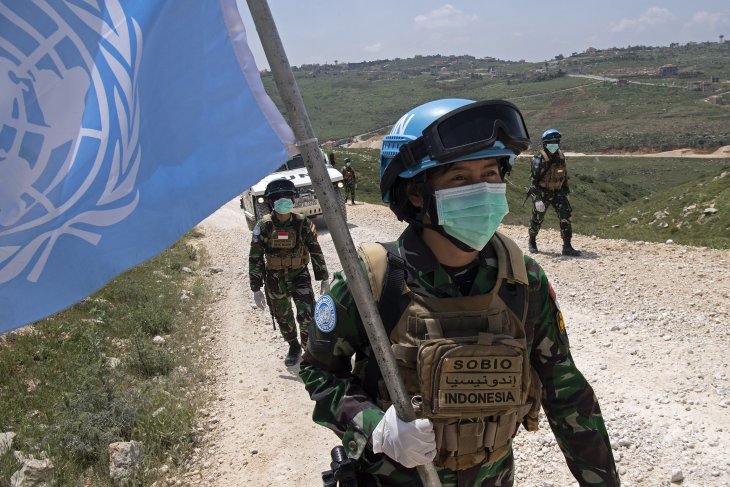
Critical role
In many regions torn by armed conflict or civil war, women and children appear to be the most affected group, as they may end up as victims of conflict-related sexual violence or gender-based violence. A human rights advocate noted this year how, in many instances, women and children have been sexually exploited by UN peacekeeping forces in exchange for food or support.
On its official website, Human Rights Watch has stated "exploitation and abuse by UN peacekeepers and personnel has been reported since the 1990s concerning peacekeeping missions in Bosnia and Herzegovina, Cambodia, the Democratic Republic of Congo, East Timor, Haiti, Liberia, Sierra Leone, and South Sudan, among others”.
"Haiti is just one of many countries where peacekeepers have raped women and girls, or sexually exploited them in exchange for food or support. My colleagues have also reported on rape by African Union force in Somalia, French and UN Peacekeepers in Central African Republic and UN troops in the Democratic of Congo," said Skye Wheeler, a senior researcher from Human Rights Watch, in her report published earlier this year.
Following the reports, the UN has conducted an investigations and announced the nationalities of the perpetrators, as well as established a trust fund and recovery program for the victims.
In light of this issue, greater women's participation in UN field missions has become critical as it could prevent further sexual abuse and exploitation. Women soldiers would instill a sense of security among women and children, and mainly victims of abuse, said another Indonesian soldier with UNIFIL, First Lieutenant Rima Eka Tiara Sari, in an interview held this week.
"We (the Indonesian battalion in UNIFIL) have set up a special team to join the mission's military gender task force and we have provided military assistance to the team. We have organized several campaigns on (sexual abuse) prevention," the lieutenant explained.
In a separate interview, Lieutenant Colonel Ratih Pusporini has recounted how, during a mission in 2008, she and her team succeeded in approaching victims of sexual abuse in a conflict-affected village in Congo.
"We know the victims are women, the previous group had failed to retrieve this information," Pusporini was quoted as saying by an official website of the Foreign Affairs Ministry of Indonesia.
Women play a greater role than men in preventing gender-based violence, including sexual abuse and exploitation, and qualify to carry out military patrols in hostile environments, conduct military training, and serve in combat, said First Sergeant, Imakulata Ngamel.
What is required is more chances for women to join peacekeeping missions. This means all countries "must believe in their female personnel, giving them equal opportunities from the beginning and in all steps of their careers, and encourage them to be deployed," said Commander Carla Monteiro de Castro Araujo, a Naval officer from Brazil, who recently received the 2019 UN Military Gender Advocate award this year.
"We need them (women) on the ground," she reiterated in her speech this week.
Related news: Indonesia remains resolute to intensifying role of female peacekeepers
Editor: Yuni Arisandy Sinaga
Copyright © ANTARA 2020
